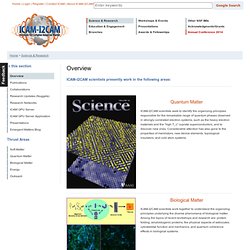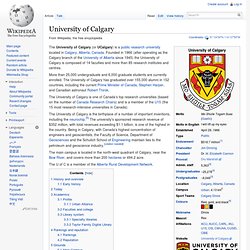

ICAM – I2CAM Institute for Complex Adaptive Matter. ICAM-I2CAM scientists presently work in the following areas: Quantum Matter ICAM-I2CAM scientists seek to identify the organizing principles responsible for the remarkable range of quantum phases observed in strongly correlated electron systems, such as the heavy electron materials and the “high T_c” cuprate superconductors, and to discover new ones.

Considerable attention has also gone to the properties of memristors, new device elements, topological insulators, and cold atom systems. Utopia Research Institute. NIMBioS: National Institute for Mathematical and Biological Synthesis. Integral Institute. Beckman Institute for Advanced Science and Technology at the University of Illinois at Urbana-Champaign. AIM math: American Institute of Mathematics. International society for biosemiotic studies. BITagora. National Centers for Systems Biology. Advanced Study // University of Notre Dame. Foundational Questions in Evolutionary Biology. Carnegie Institution for Science.
Krasnow Institute - BEYOND- Center of Fundamental Concepts of Science. Wisconsin Institutes for Discovery - Discovery Home. SBS - Institute of Evolutionary Biology. BioTeam. Los Alamos National Laboratory: T-6. Home. J.F. Crow Institute for the Study of Evolution. New England Complex Systems Institute. University of Michigan, Center for the Complex Study of Systems. NSF Mathematical Sciences Institutes. Mathematical Biosciences Institute. University of Calgary. The University of Calgary (or UCalgary) is a public research university located in Calgary, Alberta, Canada.

Founded in 1966 (after operating as the Calgary branch of the University of Alberta since 1945) the University of Calgary is composed of 14 faculties and more than 85 research institutes and centres. More than 25,000 undergraduate and 6,000 graduate students are currently enrolled. Calgary Institute for Biocomplexity and Informatics (IBI) Kauffman. Calgary Mathematics and Statistics.